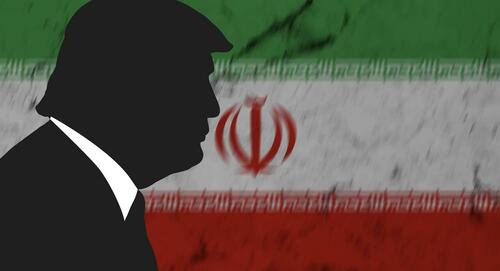(Zero Hedge)—Just days after the rapid collapse of the Syrian government of Bashar al-Assad, and now with Israeli warplanes having complete domination over Syria’s skies for the first time in modern history, the priorities of US and Israeli officials in the region have drastically changed.
Both US and Israeli leaders are now mulling the possibility of striking Iran’s nuclear program, amid several reports in recent weeks saying the Islamic Republic is expanding its program and enriching more nuclear-grade material. Tehran is now much more on the defensive, and could be more desperate to achieve nuclear weapons.
A significant Friday report in The Wall Street Journal says that “President-elect Donald Trump is weighing options for stopping Iran from being able to build a nuclear weapon, including the possibility of preventive airstrikes, a move that would break with the longstanding policy of containing Tehran with diplomacy and sanctions.”
“Trump has told Israeli Prime Minister Benjamin Netanyahu in recent calls that he is concerned about an Iranian nuclear breakout on his watch, two people familiar with their conversations said, signaling he is looking for proposals to prevent that outcome,” the report continues.
“The president-elect wants plans that stop short of igniting a new war, particularly one that could pull in the U.S. military, as strikes on Tehran’s nuclear facilities have the potential put the U.S. and Iran on a collision course.”
Currently the United States still has some 1,000 troops occupying northeast Syria, and they have come under internecine attacks by Iran-backed militias over the recent years. In any broader US-Iran war, these troops would be sitting ducks for attack via Tehran’s proxies in the region.
Trump in his first administration tried but failed to bring the troops home, but deeper entanglement in striking Iran could surely draw these troops into a broader conflict. The Pentagon would in that case likely expand its deployed forces in the region as well.
“Iran has enough highly enriched uranium alone to build four nuclear bombs, making it the only nonnuclear-weapon country to be producing 60% near-weapons-grade fissile material,” WSJ has noted further. “It would take just a few days to convert that stockpile into weapons-grade nuclear fuel.”
Iran has long maintained it develops only peaceful nuclear energy, and there’s little doubt that after the dramatic events unfolding in Syria, and with Hezbollah top leadership largely decimated, Tehran finds itself on a back foot.
Some Israeli and Western officials believe that all of this will make Iranian leaders more desperate to ensure they have a final and ultimate defense against any threats (as in rapidly developing a nuke).
But if Trump were to authorize strikes on Iranian facilities, this would also obviously violate his frequent vows to his voters to not start new wars in the Middle East. The reality is that even ‘limited’ strikes still constitute an act of war. The potential for runaway escalation involving the US, Iran, and Israel would be a much bigger likelihood
What Would You Do If Pharmacies Couldn’t Provide You With Crucial Medications or Antibiotics?
The medication supply chain from China and India is more fragile than ever since Covid. The US is not equipped to handle our pharmaceutical needs. We’ve already seen shortages with antibiotics and other medications in recent months and pharmaceutical challenges are becoming more frequent today.
Our partners at Jase Medical offer a simple solution for Americans to be prepared in case things go south. Their “Jase Case” gives Americans emergency antibiotics they can store away while their “Jase Daily” offers a wide array of prescription drugs to treat the ailments most common to Americans.
They do this through a process that embraces medical freedom. Their secure online form allows board-certified physicians to prescribe the needed drugs. They are then delivered directly to the customer from their pharmacy network. The physicians are available to answer treatment related questions.



